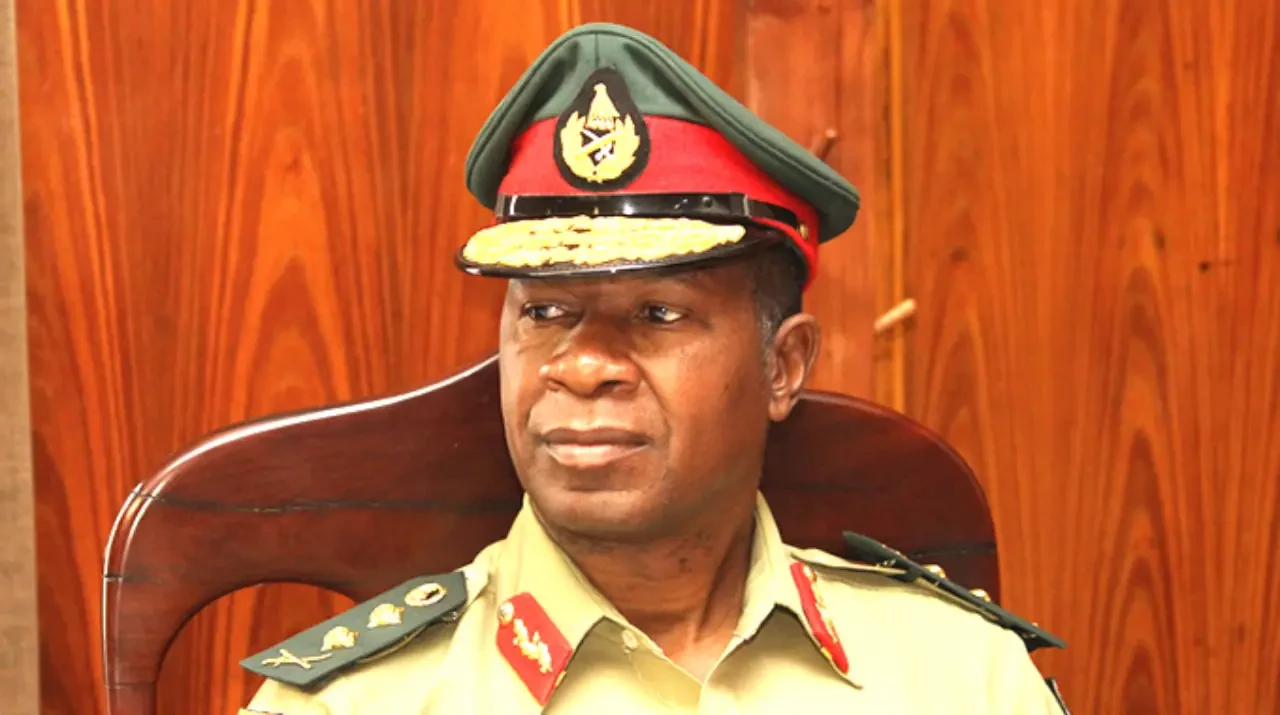
President Emmerson Mnangagwa was last week in Riyadh for the Saudi Arabia-Africa Summit where he made disturbing if not uselessly false statements meant to give the world the impression that there was nothing wrong with his appointment of General Valerio Sibanda to the Zanu PF politburo.
You will remember that the president recently made Sibanda, the commander of the Defence Forces, an ex-officio member of the powerful politburo where key decisions relating to the running of the ruling party and—by implication and conflation—government, are made.
Clearly, Mnangagwa knew that what he said to journalists in Riyadh was deliberately meant to mislead people into concluding that Sibanda’s involvement in ruling party politics was above board.
It’s disinformation, misinformation and mal-information all rolled into one stinky ball.
The president said two things that then became one long fib. Number one, he said Sibanda was not a civil servant.
Taken in itself, this is not a lie, actually. The constitution of Zimbabwe precludes the security sector from its taxonomy of civil service.
But it becomes a lie when you consider that it was meant to be used to tell a lie.
Number two, he said, as an ex-officio member of the politburo, he had no voting rights. This, again, is not a lie when taken in isolation.
- Corruption Watch: Get scared, 2023 is coming
- Corruption Watch: Get scared, 2023 is coming
- Letters: Ensuring Africa’s food security through availability of quality seeds
- Is military's involvement in politics compatible with democracy?
Keep Reading
It easily morphs into one when you consider the motive of saying it.
The combined statements about Sibanda not being a civil servant and having no voting rights in the politburo are a clever way of deploying what looks like or are, indeed, facts in order to tell a lie.
Overall, Mnangagwa’s argument is: There is nothing politically, legally and morally wrong with making Sibanda a member of the Zanu PF politburo because he is not a civil servant nor has he voting rights in the politburo. Nice try, but he wasn’t going to fool too many people with that circus fallacy!
To start with, nobody but himself knows why he threw in the issue of a civil servant. Right from the time Sibanda was dragged into the politburo, the quarrel wasn’t about him being or not being a civil servant. It was about him being a soldier getting actively involved in Zanu PF politics.
Nobody ever said Sibanda is a civil servant, therefore he must not act in a partisan way by dabbling in party politics. People were/are saying it was wrongful to appoint a serving soldier, the most senior soldier for that matter, into active politics associated with a political party.
So, you see what the president was trying to do. To get us to be diverted by a truth to then get swayed to think he did nothing wrong by appointing Sibanda into the politburo.
Yes, the constitution doesn’t characterise soldiers as civil servants.
But that’s not where the story must lie.
The fact remains that soldiers are public servants. They get paid off our pockets as taxpayers. They live in houses we built.
They drive cars that we bought for them. That means they have an obligation to us as the Zimbabwean public, and that is what makes them public servants. After all, they are supposed to safeguard our territorial integrity and provide the necessary security to us, so they are beholden to us.
A public servant is employed in the public sector by the government to do public work. Soldiers do this too. That makes Sibanda a public servant.
It is, therefore, misleading to limit the argument to civil servants just because, conveniently, the constitution doesn’t recognise soldiers as civil servants.
The principle remains the same. If your service is to the public and the public is your paymaster, you need to be loyal to the public and them alone.
If you are then going to get involved in party politics, you are getting it all wrong.
It’s mysterious why the president omitted telling the journalists in Saudi Arabia that the Zimbabwean constitution actually prohibits soldiers from taking part in active partisan politics.
This is what the supreme law says in Section 211(3): “The Defence Forces must respect the fundamental rights and freedoms of all persons and BE NON-PARTISAN”.
Being an ex officio member of Zanu PF is partisan. If you are partisan in that regard, you are breaking the law. So, if you appoint Sibanda to the politburo, you are helping him to be partisan.
That means you have two culprits here, the appointer and the appointed. It, therefore, doesn’t matter whether or not Sibanda is a civil servant or not. He is a soldier, and soldiers are not allowed to be politically partisan.
Then the issue of Sibanda having no voting rights in the politburo is neither here nor there, Cde ED. The prezzo wants us to think that lacking voting rights makes things right. No, it doesn’t. Mnangagwa has admitted that Sibanda contributes to conversations at politburo meetings. That in itself is active engagement in partisan politics. And getting involved in active politics by a general is what matters because it is what proves the partisanship.
*Tawanda Majoni writes in his personal capacity and can be contacted on [email protected]







